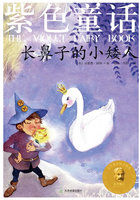In any large town in England it is probable that a higher excellence of education would be found than in Milwaukee, and also a style of life into which more of refinement and more of luxury had found its way. But the general level of these things, of material and intellectual well-being--of beef, that is, and book learning--is no doubt infinitely higher in a new American than in an old European town. Such an animal as a beggar is as much unknown as a mastodon. Men out of work and in want are almost unknown. I do not say that there are none of the hardships of life--and to them I will come by-and-by--but want is not known as a hardship in these towns, nor is that dense ignorance in which so large a proportion of our town populations is still steeped. And then the town of 40,000 inhabitants is spread over a surface which would suffice in England for a city of four times the size. Our towns in England--and the towns, indeed, of Europe generally--have been built as they have been wanted. No aspiring ambition as to hundreds of thousands of people warmed the bosoms of their first founders. Two or three dozen men required habitations in the same locality, and clustered them together closely. Many such have failed and died out of the world's notice. Others have thriven, and houses have been packed on to houses, till London and Manchester, Dublin and Glasgow have been produced. Poor men have built, or have had built for them, wretched lanes, and rich men have erected grand palaces. From the nature of their beginnings such has, of necessity, been the manner of their creation. But in America, and especially in Western America, there has been no such necessity and there is no such result. The founders of cities have had the experience of the world before them. They have known of sanitary laws as they began. That sewerage, and water, and gas, and good air would be needed for a thriving community has been to them as much a matter of fact as are the well-understood combinations between timber and nails, and bricks and mortar. They have known that water carriage is almost a necessity for commercial success, and have chosen their sites accordingly. Broad streets cost as little, while land by the foot is not as yet of value to be regarded, as those which are narrow; and therefore the sites of towns have been prepared with noble avenues and imposing streets.
A city at its commencement is laid out with an intention that it shall be populous. The houses are not all built at once, but there are the places allocated for them. The streets are not made, but there are the spaces. Many an abortive attempt at municipal greatness has so been made and then all but abandoned. There are wretched villages, with huge, straggling parallel ways, which will never grow into towns. They are the failures--failures in which the pioneers of civilization, frontier men as they call themselves, have lost their tens of thousands of dollars. But when the success comes, when the happy hit has been made, and the ways of commerce have been truly foreseen with a cunning eye, then a great and prosperous city springs up, ready made as it were, from the earth.
Such a town is Milwaukee, now containing 45,000 inhabitants, but with room apparently for double that number; with room for four times that number, were men packed as closely there as they are with us.
In the principal business streets of all these towns one sees vast buildings. They are usually called blocks, and are often so denominated in large letters on their front, as Portland Block, Devereux Block, Buel's Block. Such a block may face to two, three, or even four streets, and, as I presume, has generally been a matter of one special speculation. It may be divided into separate houses, or kept for a single purpose, such as that of a hotel, or grouped into shops below, and into various sets of chambers above.
I have had occasion in various towns to mount the stairs within these blocks, and have generally found some portion of them vacant--have sometimes found the greater portion of them vacant. Men build on an enormous scale, three times, ten times as much as is wanted. The only measure of size is an increase on what men have built before. Monroe P. Jones, the speculator, is very probably ruined, and then begins the world again nothing daunted. But Jones's block remains, and gives to the city in its aggregate a certain amount of wealth. Or the block becomes at once of service and finds tenants. In which case Jones probably sells it, and immediately builds two others twice as big. That Monroe P. Jones will encounter ruin is almost a matter of course; but then he is none the worse for being ruined. It hardly makes him unhappy. He is greedy of dollars with a terrible covetousness; but he is greedy in order that he may speculate more widely. He would sooner have built Jones's tenth block, with a prospect of completing a twentieth, than settle himself down at rest for life as the owner of a Chatsworth or a Woburn. As for his children, he has no desire of leaving them money. Let the girls marry. And for the boys--for them it will be good to begin as he begun. If they cannot build blocks for themselves, let them earn their bread in the blocks of other men. So Monroe P. Jones, with his million of dollars accomplished, advances on to a new frontier, goes to work again on a new city, and loses it all. As an individual I differ very much from Monroe P. Jones. The first block accomplished, with an adequate rent accruing to me as the builder, I fancy that I should never try a second. But Jones is undoubtedly the man for the West.
It is that love of money to come, joined to a strong disregard for money made, which constitutes the vigorous frontier mind, the true pioneering organization. Monroe P. Jones would be a great man to all posterity if only he had a poet to sing of his valor.















